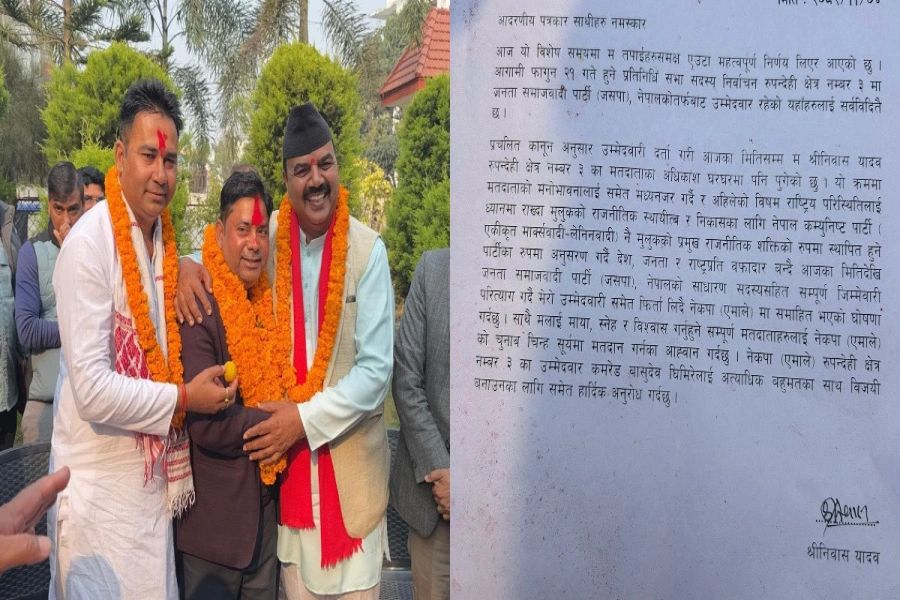KYIV/MOSCOW, Jan 14: Ukraine was hit by a massive cyberattack warning its citizens to "be afraid and expect the worst", and Russia, which has massed more than 100,000 troops on its neighbour's frontier, released TV pictures on Friday of more forces deploying in a drill.
The developments unfolded hours after talks wrapped up with no breakthrough between Russia and Western states, which fear Moscow could launch a new attack on a country it invaded in 2014.
"The drumbeat of war is sounding loud," Michael Carpenter, U.S. Ambassador to the Organization for Security and Cooperation in Europe (OSCE), said at the close of talks on Thursday.
Russia denies plans to attack Ukraine but says it could take unspecified military action unless demands are met, including a promise by the NATO alliance never to admit Kyiv.
Foreign Minister Sergei Lavrov said on Friday Russia hoped security talks with the United States would resume, but this would depend on Washington's response to Moscow's proposals.
"We categorically will not accept the appearance of NATO right on our borders, especially so given the current course of the Ukrainian leadership," he said.
Ukraine-Russia crisis: What to know as tensions hit new high

Asked what Moscow meant by threatening this week to take "military-technical action" if talks fail, Lavrov said: "Measures to deploy military hardware, that is obvious. When we take decisions with military hardware we understand what we mean and what we are preparing for."
Russian Defence Ministry footage released by RIA news agency showed armoured vehicles and other military hardware being loaded onto trains in Russia's far east, in what Moscow called an inspection drill to practice deploying over a long distance.
"This is likely cover for the units being moved towards Ukraine," said Rob Lee, a military analyst and a fellow at the U.S.-based Foreign Policy Research Institute.
"EXPECT THE WORST"
The movements indicated Russia has no intention of dialling down tensions over Ukraine, having used its troop build-up to press sweeping demands for "security guarantees" mainly described by the United States as non-starters.
Ukrainian officials were investigating the huge cyberattack, which they said hit around 70 internet sites of government bodies including the ministry of foreign affairs, cabinet of ministers, and security and defence council. Though they avoided directly accusing Moscow, they made clear Russia was suspected.
"Ukrainian! All your personal data was uploaded to the public network. All data on the computer is destroyed, it is impossible to restore it," said a message visible on hacked government websites, written in Ukrainian, Russian and Polish.
"All information about you has become public, be afraid and expect the worst. This is for your past, present and future."
Ukraine's foreign ministry spokesperson told Reuters it was too early to say who could be behind the attack but Russia had been behind similar strikes in the past. Russia did not immediately comment but has previously denied being behind cyber attacks, including against Ukraine.
The Ukrainian government said it had restored most of the affected sites and no personal data had been stolen. A number of other government websites had been suspended to prevent the attack from spreading.
Ukraine's military intelligence also accused Moscow of preparing "provocations" against Russian troops based in a breakaway region of neighbouring Moldova, which could be used as a pretext to invade Ukraine on a new front to the west.
The European Union's top diplomat, Josep Borrell, condemned the attack and said the EU's political and security committee and cyber units would meet to see how to help Kyiv: "I can't blame anybody as I have no proof, but we can imagine."
The message left by the cyberattack was peppered with references that echoed long-running Russian state allegations, rejected by Kyiv, that Ukraine is in the thrall of far-right nationalist groups. It also referred to the sites of killings carried out in Nazi German-occupied Poland by Ukrainian insurgents, a point of contention between Poland and Ukraine.
The United States warned on Thursday that the threat of a Russian military invasion was high. Russia has consistently denied that. Moscow said dialogue was continuing but was hitting a dead end as it tried to persuade the West to bar Ukraine from joining NATO and roll back decades of alliance expansion in Europe.
The United States and NATO have rejected those demands but said they are willing to talk about arms control, missile deployments, confidence-building measures and limits on military exercises.










_20220420073621.jpeg)


























